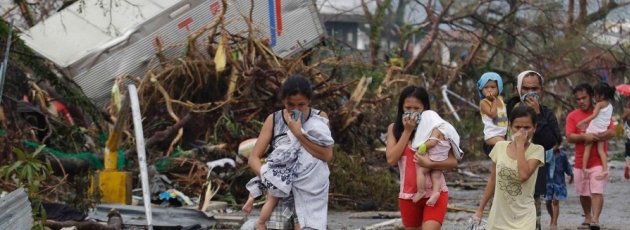- Home
- News & Blogs
- About Us
- What We Do
- Our Communities
- Info Centre
- Press
- Contact
- Archive 2019
- 2015 Elections: 11 new BME MP’s make history
- 70th Anniversary of the Partition of India
- Black Church Manifesto Questionnaire
- Brett Bailey: Exhibit B
- Briefing Paper: Ethnic Minorities in Politics and Public Life
- Civil Rights Leader Ratna Lachman dies
- ELLE Magazine: Young, Gifted, and Black
- External Jobs
- FeaturedVideo
- FeaturedVideo
- FeaturedVideo
- Gary Younge Book Sale
- George Osborne's budget increases racial disadvantage
- Goldsmiths Students' Union External Trustee
- International Commissioners condemn the appalling murder of Tyre Nichols
- Iqbal Wahhab OBE empowers Togo prisoners
- Job Vacancy: Head of Campaigns and Communications
- Media and Public Relations Officer for Jean Lambert MEP (full-time)
- Number 10 statement - race disparity unit
- Pathway to Success 2022
- Please donate £10 or more
- Rashan Charles had no Illegal Drugs
- Serena Williams: Black women should demand equal pay
- Thank you for your donation
- The Colour of Power 2021
- The Power of Poetry
- The UK election voter registration countdown begins now
- Volunteering roles at Community Alliance Lewisham (CAL)
Typhoon exposes climate change injustice
Typhoon Haiyan, the strongest storm of its kind on record with winds up to 235km/h (147mph), devastated swathes of the Philippines and left the island nation reeling in ‘absolute bedlam’, according to the head of the Red Cross.
On Monday, a Philippine military spokesman confirmed millions homeless and 942 people dead in the typhoon’s aftermath, but officials estimate that 10,000 could have died in the hardest hit city of Tacloban alone.
Experts point to the devastation as yet another sign of climate change - of which poor, developing countries are the disproportionately unjust victims.
With sad irony, today marks the beginning of the UN Climate Change Conference in Warsaw, Poland. At its opening, Naderev Saño, also known as Yeb Saño, head of the Philippines delegation, gave an impassioned appeal for awareness and reform. He said:
Science tells us that simply, climate change will mean more intense tropical storms...To anyone who continues to deny the reality that is climate change, I dare them to go to the islands of the Pacific...where climate change has likewise become a matter of life and death as food and water becomes scarce,”
Three days after the storm’s landfall, BBC eyewitness reporter Jon Donnison describes the city as an apocalyptic scene. He paints the picture of streets strewn with debris and rotting bodies, makeshift hospitals set up for women to give birth, and hundreds clamouring at the airport to get out.
There is still no clean water, no electricity, and dwindling food supplies. Although international aid has been mobilized, destroyed roads and power lines make it almost impossible to get aid to those who need it most.
As the hungry and thirsty grow desperate, looting of houses, supermarkets, and Red Cross envoys has been reported, with some fearing it will only get worse.
Andrew Pomeda, a high school teacher, told AFP news agency:
Tacloban is totally destroyed. Some people are losing their minds from hunger or from losing their families. People are becoming violent...I am afraid that in one week, people will be killing from hunger,”
The cruel and sad truth of this tragedy is that it was not completely unpredicted.
The most recent report from the Intergovernmental Panel on Climate Change (IPCC), released 30 September 2013, predicted that tropical storms in this area would grow more intense in the years to come.
Saleemul Huq, director of the International Centre for Climate Change and Development based in Dhaka, said:
Most developing countries are facing climate change now. They do not need the IPCC to tell them that the weather is changing,”
The report went on to state that “low-income countries will remain on the frontline of human-induced climate change over the next century, experiencing gradual sea-level rises, stronger cyclones, warmer days and nights, more unpredictable rains, and larger and longer heatwaves”.
For experts in the field, the link between economics and environmental impact is undeniable.
An October report from Britain’s Overseas Development Institute (ODI) reveals the “very close overlap” between poverty and the countries most exposed to natural hazards.
Dr. Tom Mitchell, head of Climate Change and one of the authors of the report, said:
This shouldn’t really come as a surprise because the poorest and most vulnerable people get hit hardest by extreme events,”
Mitchell added that, in spite of the significant demand, countries most in need are getting very little international aid for preparedness and risk reduction – less than $2 million USD per year each.
The report concluded that ending extreme poverty is unlikely until governments “come to terms with the increased risk of natural disasters in some of the poorest parts of the world.”
The horrific devastation of Haiyan Typhoon reveals the injustice that climate change is most acutely felt by the poorest people in the least developed countries, for which it’s the hardest to recover.
"We here in the UK, in our stronger, more comfortable homes, with our Governments better prepared for the climate's relatively mild changes - river's bursting their banks and storms - can at least demand from our politicians that this issue is nationally and globally of critical importance," said Simon Woolley, director of OBV.
The tragedy of the last few days reminds the world that climate change is not a luxury conversation – not when the penalty for its silencing is a shattered country littered with thousands of corpses.
By Mallory Moench
